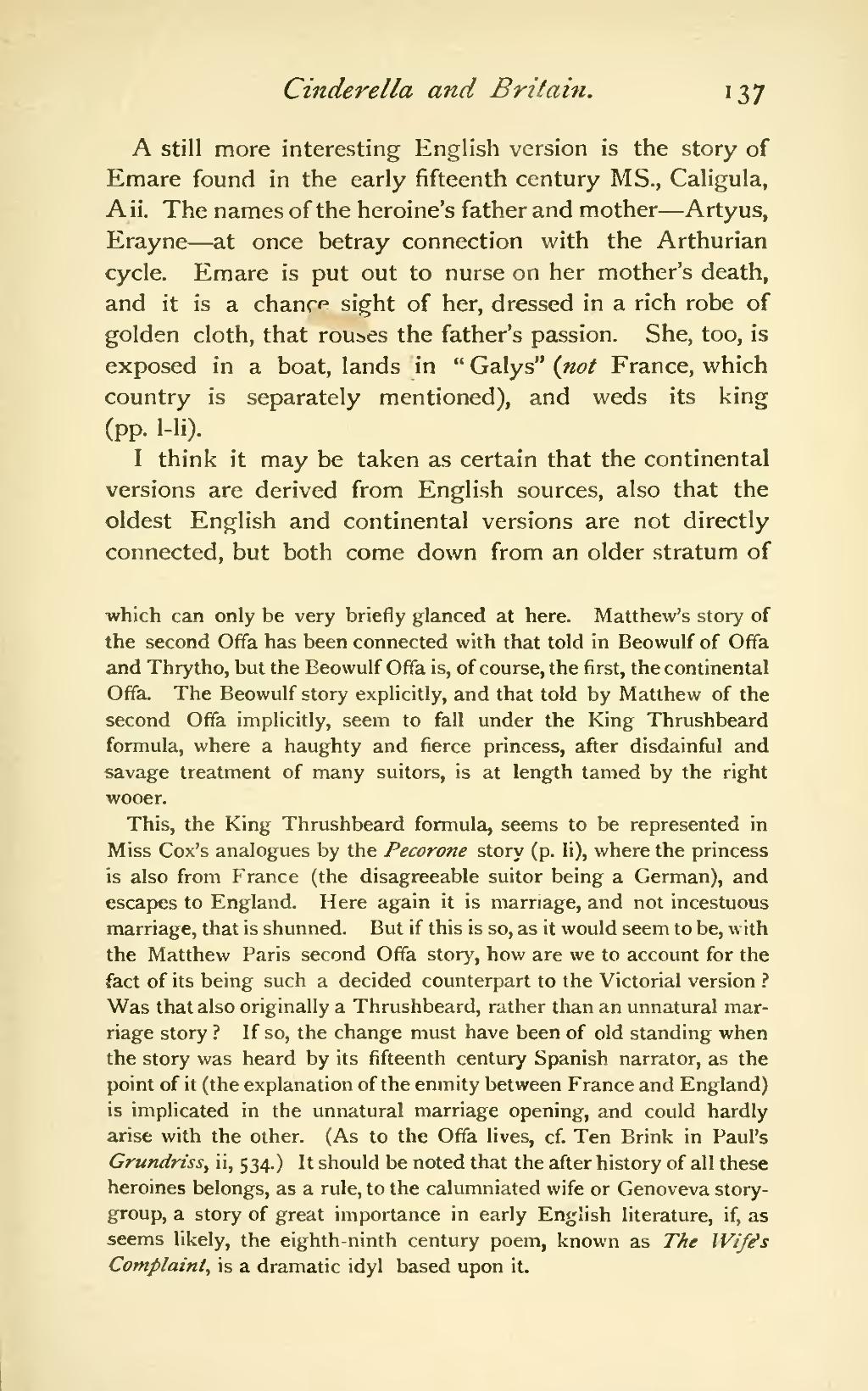A still more interesting English version is the story of Emare found in the early fifteenth century MS., Caligula, Ail. The names of the heroine's father and mother—Artyus, Erayne—at once betray connection with the Arthurian cycle. Emare is put out to nurse on her mother's death, and it is a chanre sight of her, dressed in a rich robe of golden cloth, that routes the father's passion. She, too, is exposed in a boat, lands in "Galys" (not France, which country is separately mentioned), and weds its king (pp. l-li).
I think it may be taken as certain that the continental versions are derived from English sources, also that the oldest English and continental versions are not directly connected, but both come down from an older stratum of
which can only be very briefly glanced at here. Matthew's story of the second Offa has been connected with that told in Beowulf of Offa and Thrytho, but the Beowulf Offa is, of course, the first, the continental Offa. The Beowulf story explicitly, and that told by Matthew of the second Offa implicitly, seem to fall under the King Thrushbeard formula, where a haughty and fierce princess, after disdainful and savage treatment of many suitors, is at length tamed by the right wooer.
This, the King Thrushbeard formula, seems to be represented in Miss Cox's analogues by the Pecorone story (p. li), where the princess is also from France (the disagreeable suitor being a German), and escapes to England. Here again it is marriage, and not incestuous marriage, that is shunned. But if this is so, as it would seem to be, with the Matthew Paris second Offa story, how are we to account for the fact of its being such a decided counterpart to the Victorial version? Was that also originally a Thrushbeard, rather than an unnatural marriage story? If so, the change must have been of old standing when the story was heard by its fifteenth century Spanish narrator, as the point of it (the explanation of the enmity between France and England) is implicated in the unnatural marriage opening, and could hardly arise with the other. (As to the Offa lives, cf. Ten Brink in Paul's Grundriss, ii, 534.) It should be noted that the after history of all these heroines belongs, as a rule, to the calumniated wife or Genoveva storygroup, a story of great importance in early English literature, if, as seems likely, the eighth-ninth century poem, known as The Wife's Complaint, is a dramatic idyl based upon it.
